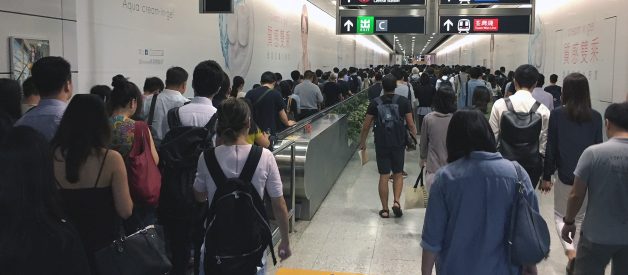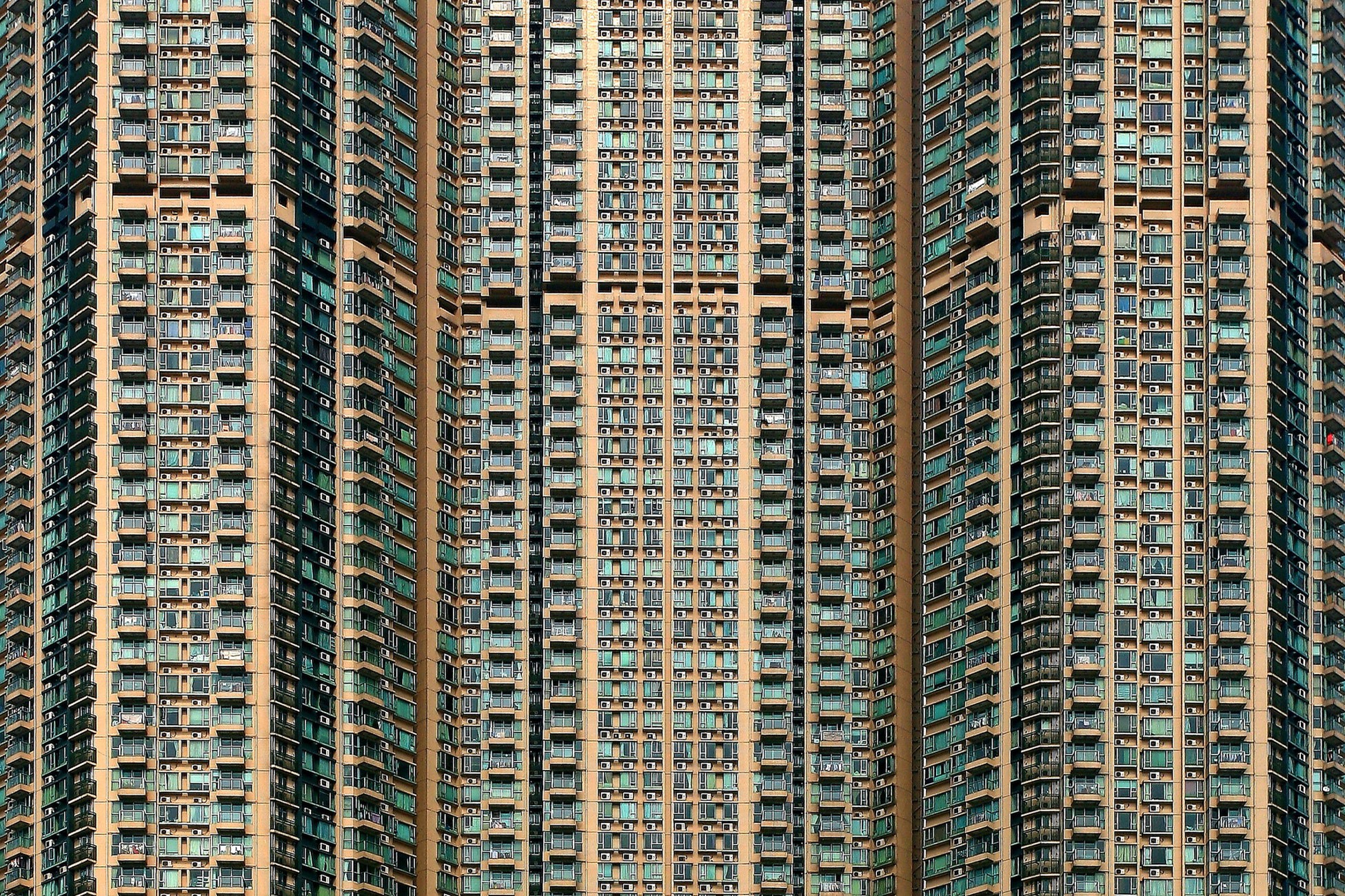 None of those epic photos for the cover image. Just a typical HK housing estate. (Photo credit: Max Privette)
None of those epic photos for the cover image. Just a typical HK housing estate. (Photo credit: Max Privette)
It happens all the time.
Someone visits Hong Kong ? usually for the first time ? and declares that they?re in love.
?This place is amazing?I?m going to move here!?
At this point, their friends or family members (who actually live in Hong Kong) might even try to talk them out of it ? to no avail.
Well, we?re not giving up. This article is meant to be the last line of defense. If you (or someone you know) is seriously considering moving to HKG, let the following serve as a reminder of why visiting Hong Kong and living here full-time are two very different ball games.
Before we start, let?s be clear on one thing: Hong Kong is an amazing city. There?s delicious food on every corner (for every budget and taste), hundreds of kilometers of hiking trails, sandy beaches, outlying islands within reach, ridiculously efficient public transport, world-class infrastructure? all connected by an energy that keeps things buzzing 20 hours/day. Anyone that claims to be a traveler owes it to themselves to visit HK at least once ? even if just to take it all in.
But don?t make the mistake of assuming that euphoria of galavanting for 3?4 days through Hong Kong is going to magically continue if you move here. Don?t move here based on emotion all the while trying to rationalize after the fact with appeals to logic such as ?oh, I?ll be saving so much more money because the taxes are so low!? (Pro tip: you probably won?t be.)
Now, onto the fun part.
Here are 10 perfectly good reasons for NOT moving to Hong Kong:
1. Hong Kong is full
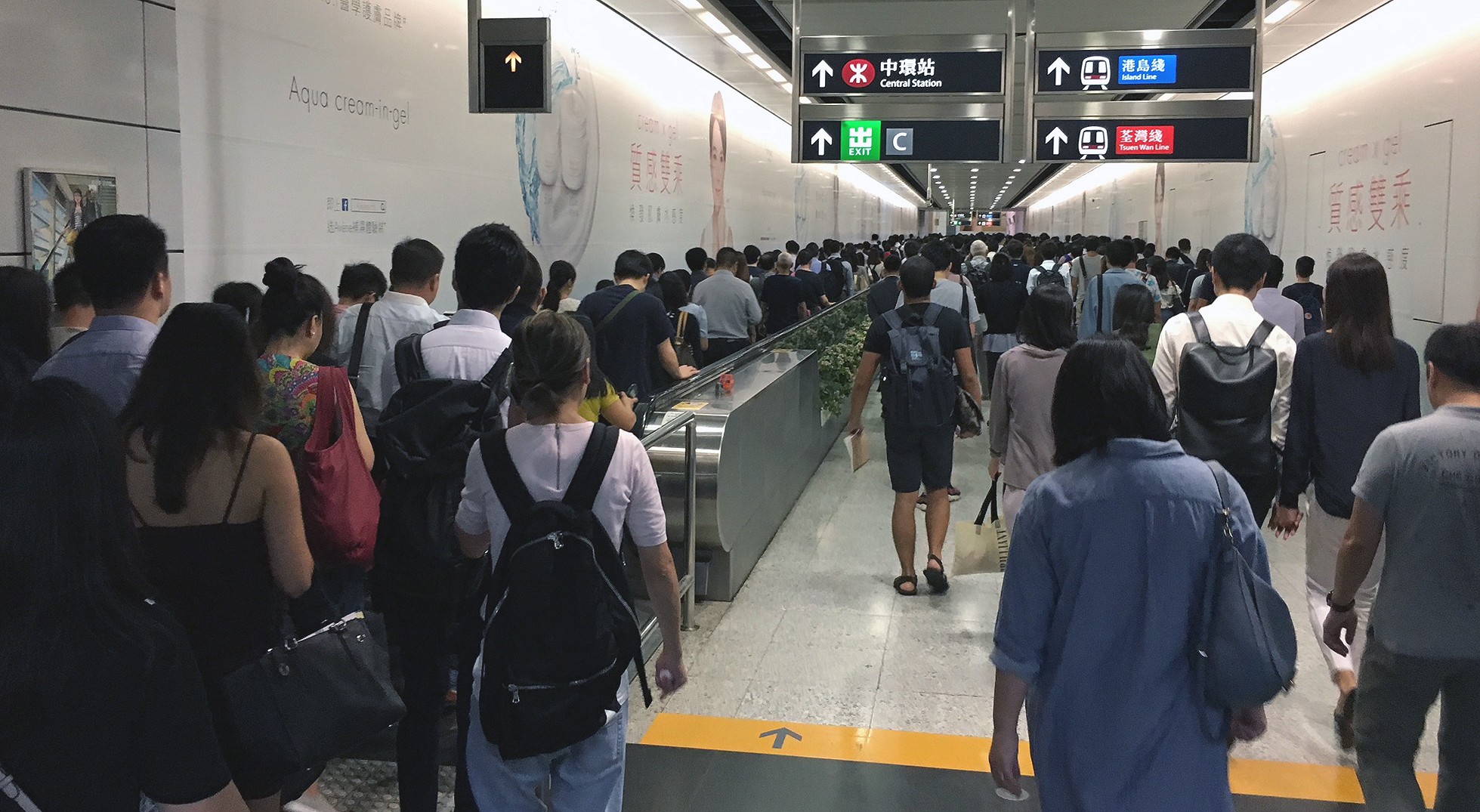 Rush hour in the MTR (This doesn?t even begin to capture the claustrophobic moments in Hong Kong)
Rush hour in the MTR (This doesn?t even begin to capture the claustrophobic moments in Hong Kong)
All it takes is one ride on the MTR (Hong Kong?s metro) during rush hour.
After the first 30 minutes of pushing and maneuvering your way through throngs of grumpy commuters, you will find that all that city ?buzz? and energy quickly loses its charm.
Simply put, there are too many people here ? and the statistics speak for themselves:
- Total population: 7.43 million (~7,100 people per square km)
- HK Island population: 1.27 million (~16,300 people per square km)
Keep in mind that these are just the population figures. During the workweek, hundreds of thousands of people will be making their way to each major commercial district (MTR daily ridership: 4.815 million). Imagine being packed shoulder-to-shoulder inside a narrow train compartment for an hour each day, constantly having to push your way through to get anywhere.
Even Hong Kong?s excellent public transport system can?t keep up with the sheer numbers that pass through the city each day.
But wait, there?s more. Let?s talk about the tourists:
- Annual visitors to Hong Kong: 58.47 million (44.45 million from China alone)
You won?t just be sharing HK with residents . As a major Asian hub ? and popular shopping destination for mainland Chinese visitors ? Hong Kong?s receives a mind-boggling amount of tourists each year. Unless you live and/or work in a remote part of the New Territories, there?s simply no escape.
The city clearly wasn?t designed for this many people.
2. Pollution is a real problem
 The haze can make Hong Kong look like downright dystopian (Source: Meiying Ng)
The haze can make Hong Kong look like downright dystopian (Source: Meiying Ng)
Air quality is a touchy subject in Hong Kong.
On one hand, there are those who outright deny it?s a problem (?oh, it?s just foggy today?). Others maintain that things are getting better (?this is nothing, it was so much worse a few years ago?).
Still, all it takes is one look at the numbers to understand why the issue simply can?t be ignored.Note: there are many ways to measure air quality. One can look specifically at PM2.5 or PM10 levels (atmospheric particulate matter with diameter less than 2.5 or 10 micrometers, respectively). Alternatively, we have measures and indicators for acceptable levels of Sulfur Dioxide (SO2), Nitrogen Dioxide (NO2), and Ground-level Ozone (O3). When you encounter any kind of statements or statistics about air quality in HK (or elsewhere), we encourage you to do your own research to verify the situation.
A 2017 Air Quality Review by the Clean Air Network (link to pdf) revealed that many Hong Kong districts see pollution levels above the World Health Organization (WHO) standards for >75% of any given day:
- Excessive PM10 levels: Causeway Bay, Tuen Mun, Mong Kok, Kwun Tong, Kwai Chung
- Excessive PM2.5 levels: all recording stations except Tung Chung, Shatin, and Eastern District
- Excessive NO2 levels: Causeway Bay, Mong Kok, Central
The report went as far as to identify pollution ?blackspots? (particularly bad areas): Tuen Mun, Kwai Chung, Causeway Bay, Mong Kok and Central.
These aren?t random industrial areas in Hong Kong ? on the contrary, these are very busy districts with many offices and residential buildings.
You can lay the blame on whatever you like (or a combination thereof): excessive vehicle use, skyscrapers trapping particles, China next door, etc. The problem, however, is very real and anyone moving to HK from the US / UK / Canada / Australia / Western Europe will notice the difference immediately.
So what are the potential health effects?
The American Heart Association summarized it best:
?Exposure to PM <2.5 microm in diameter (PM(2.5)) over a few hours to weeks can trigger cardiovascular disease-related mortality and nonfatal events; longer-term exposure (eg, a few years) increases the risk for cardiovascular mortality to an even greater extent than exposures over a few days and reduces life expectancy within more highly exposed segments of the population by several months to a few years? ? from the Journal of the American Medical Association
Prolonged exposure to pollutant particles can lead to:
- heart and lung disease
- hardening of the arteries (from plaque deposits)
- increased risk of lung cancer
- birth defects in children
- ? and so on.
The infamous SARS-era tourist brochures were correct: Hong Kong might just take your breath away.
3. The rent will obliterate your budget
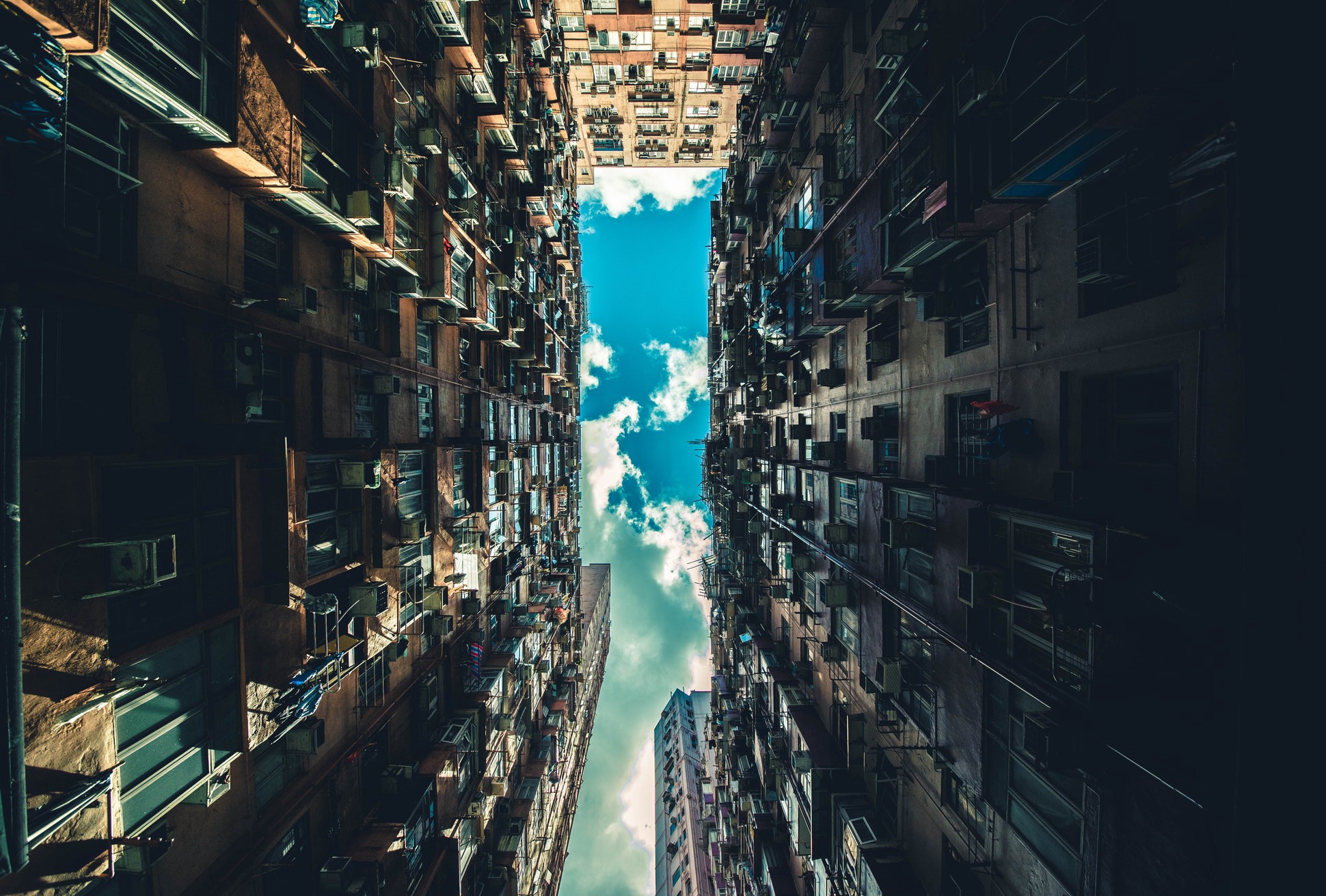 High rent prices keep many Hong Kongers feeling trapped (Source: Rikki Chan)
High rent prices keep many Hong Kongers feeling trapped (Source: Rikki Chan)
The Hong Kong property market routinely makes headlines around the world ? sale prices are obscenely high, and flipping is rampant. For the vast majority of residents, purchasing property is completely out of the question.
But what about renting a place?
Well, ultimately it all depends on your needs and expectations.
It?s actually possible to live in Hong Kong on a budget. There aren?t any ?dangerous? areas, so there are certainly deals to be had if you?re willing to accept a longer commute. If you?re young, you might be OK with splitting a place (i.e. flatshare).
Here?s how much rent you can expect to pay per month (source: Numbeo):
- 1 Bedroom in city center (HK Island): HK$18,246 ($2,360 USD)
- 1 Bedroom outside of center (outer Kowloon / New Territories): HK$11,855 ($1,530 USD)
- 3 Bedrooms in center: HK$23,022 ($2,980 USD)
- 3 Bedrooms outside of center: HK$36,923 (4,780 USD)
- Extra costs may include Government property taxes, stamp duty, building management fees, etc. (budget for an extra 15% to be safe)
It?s no wonder that many young people in Hong Kong live with their parents until they either (a) qualify for public housing discounts or (b) get married.
Of course, if you manage to snag a comfortable expat package ? perhaps even with a housing allowance ? then the rent prices may not be a big deal.
4. You might actually make less money
Are the taxes lower? Yes.
As long as you?re not American*, you?ll immediately benefit from Hong Kong?s relatively low income tax rates. While there?s a formula to calculate taxes (factoring in deductions and allowances), it essentially boils down to: you?ll pay a maximum of 15% in tax on net income.
But will you actually make more money? Hard to say.
Even with all the tax savings, you?ll have to account for higher cost of living in almost every respect:
- Housing costs (see above)
- Nightlife is very expensive (think US$10 for a beer or US$15?20 for a cocktail)
- You?ll be tempted to eat out more, and that adds up quick
- All those long weekend ?side trips? to Asian destinations
- Expensive flights when visiting relatives back home
- Overpriced imported groceries/produce (just ask the French in HK about the cheese situation)
- Tuition fees for the kids (covered below)
- Supporting a dependent partner (until they can find a local employer to sponsor a work visa)
- Relocation costs (if not covered by employer)
- ? and so on.
Make no mistake: this is an expensive city. And if you sit down and do the math, you might find that you?re actually saving less money at the end of each month (compared to your existing setup).
*Americans can claim the first US$104,100 of their income as tax-free provided they are either (a) legal resident of another country or (b) spend 330 days of the year outside of the US.
5. Raising kids here is not for the faint of heart
(If this doesn?t apply to you, please skip ahead)
It?s one thing to move to Hong Kong when you?re single ? without any major responsibilities or commitments, you?re free to live however you please (and the option to leave is always open).
Relocating a family ? or starting a new one in Hong Kong ? is a whole different experience, however. Just some of the potential issues to consider:
- If you move your kids over to Hong Kong, they may not like it. If they?re young enough, this might be OK (everyone?s more malleable prior to age 12 or so). However, a teenager could experience severe culture shock and may resent the entire experience
- Chances are, there?s going to be considerably less living / playing space compared to what your kids are used to.
- Spots in Hong Kong schools are very competitive ? good schools have waiting lists and lengthy application processes (expect to submit an application a whole year before matriculation).
- Even if you do manage to get your kid into one of the schools, be prepared to fork out a small fortune on tuition. Expect to pay anywhere from HK$60,000 to $185,000 on yearly tuition (not including textbooks, school trips, and other fees). Yes, kindergarten too.
- Simply living in HK may be a strain on kids with asthma or other respiratory conditions
If you?re not on a fancy expat compensation package, living in Hong Kong is already tricky enough. Doing it with kids is like playing on hard mode.
6. Intense heat and humidity for half of the year
I?ll give you the benefit of the doubt.
Let?s assume you can take the summer heat. 35 degrees (95 in Freedom units) and you?re completely fine ? comfortable even. ?Sounds awesome, I?d be on the beach every weekend,? you say.
Just to set some expectations (data doesn?t factor in recent temperature increases and heat waves due to climate change):
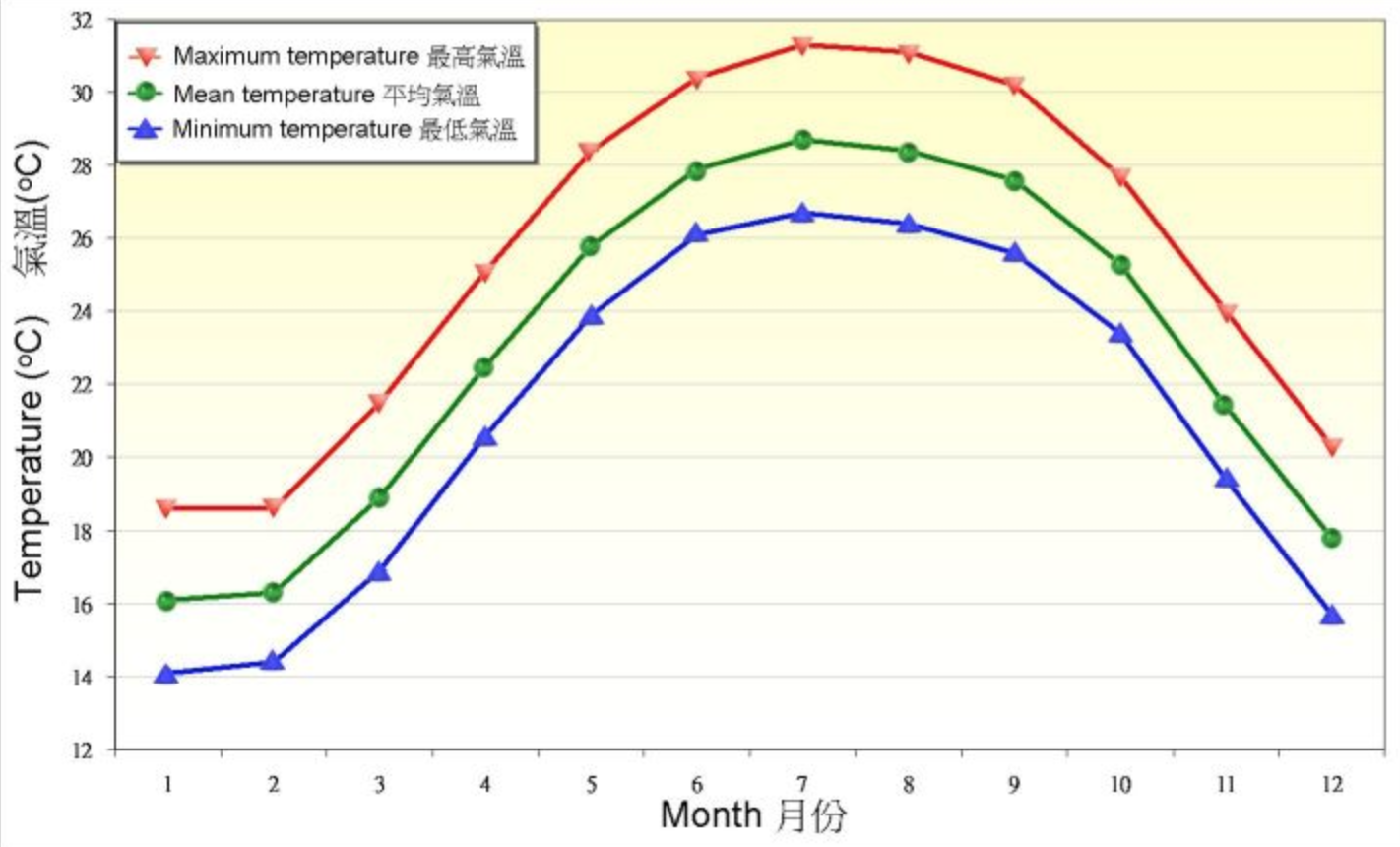 Average monthly temperature data (source: Hong Kong Observatory)
Average monthly temperature data (source: Hong Kong Observatory)
But what about typhoon season? And more importantly, how would you feel in 95% humidity from May to September? The average relative humidity in Hong Kong is a whopping 77%.
When combined with heat, high humidity will make you feel like you?re in a sauna every time you walk outside. Just 2 minutes on the street and your clothes will start sticking to your back. You will sweat profusely, and begin to look for an escape ? seeking refuge in a mall, MTR station, or even the closest 7/11 for a few seconds of respite. You?ll feel like taking shower? immediately after taking a shower. It?s not a pleasant feeling.
Combine this with pushy crowds, a demanding work schedule, formal business attire?
7. The (growing) language barrier
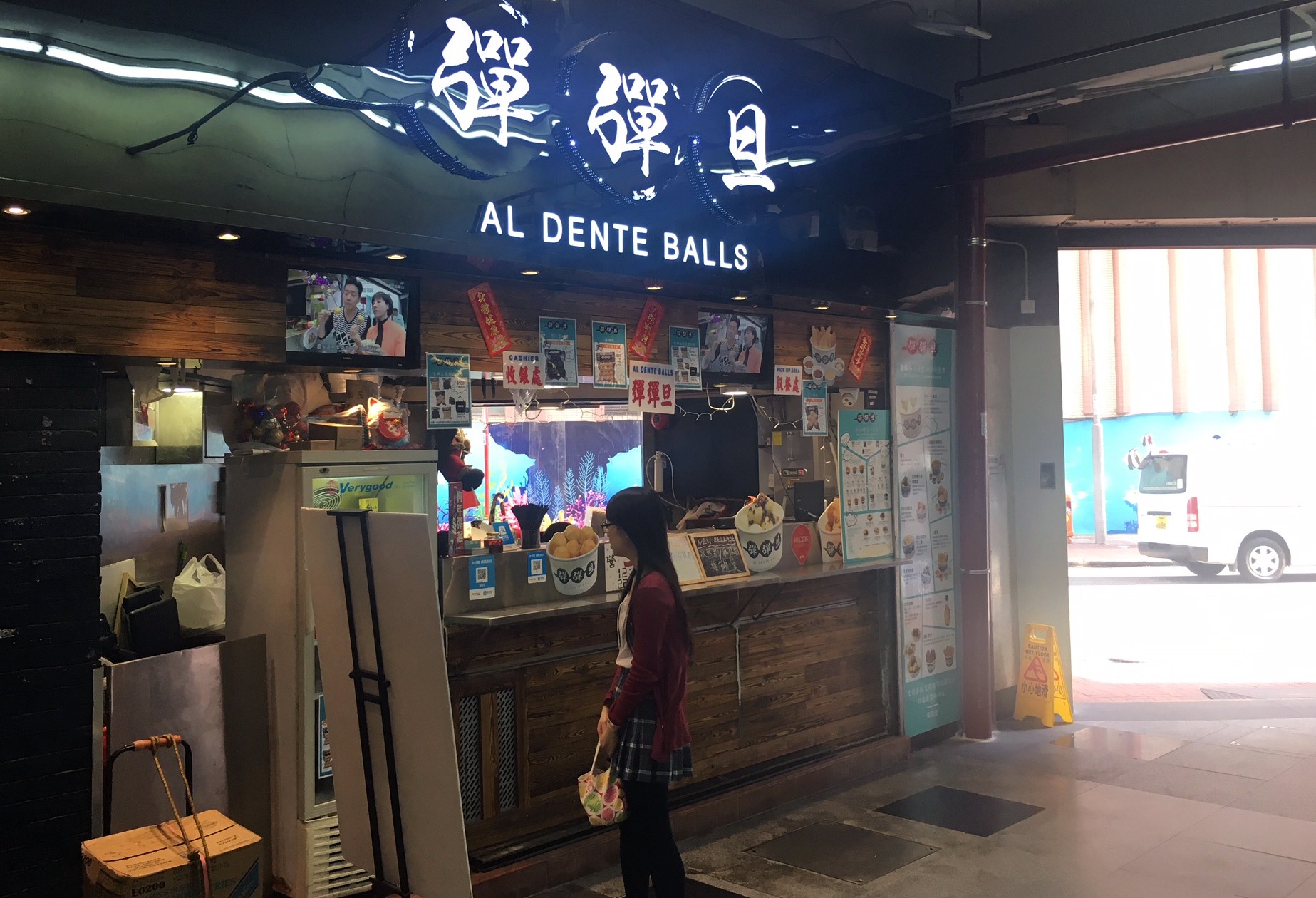 Some expats get through life in HK by enjoying cross-cultural moments such as this
Some expats get through life in HK by enjoying cross-cultural moments such as this
I can tell what you?re thinking.
?If you?re moving to a new country, why aren?t you learning the language? Why should the locals adjust to you??
You?re absolutely right, of course. Learning to speak the local language is a critical step towards integrating into any society.
Achieving fluency in Cantonese, however, is not an option for every newcomer in HK. Some simply don?t have the time to dedicate to after-work language classes. Others may only be here on a 1?2 year assignment and may feel that there won?t be enough time to achieve anything other than the basics. Not to mention the fact that any dialect of Chinese is not easy to learn.
For a long time, this wasn?t an issue in Hong Kong. English is an Official Language (according to the Basic Law) and one could easily get around speaking English alone.
In recent years, however, English ability among locals has been declining (at least it seems that way for many on the ground). Mandarin is being emphasized more and more ? not only in schools, but also in any kind of retail/hospitality position (mainland Chinese visitors are the chief source of retail revenues, after all). You?ll now routinely encounter taxi drivers that speak close to zero English.
All of this contributes to the concept of an ?expat bubble? in Hong Kong ? the experience of primarily hanging out with other foreigners and living in the typical expat districts (e.g. Central, Mid-levels, Island West, Repulse Bay, Stanley, Discovery Bay).
For many, it?s frustrating to feel left out of local issues, politics, culture, etc. While Happy Hour in Wan Chai or Lan Kwai Fong works as a distraction, it?s not a long term solution. Go out drinking with the expats in Hong Kong and you?ll start hearing the grievances ? from not being understood at the supermarket to finding it difficult to communicate with coworkers.
8. Runaway consumerist culture
 In Hong Kong, mall culture reigns supreme.
In Hong Kong, mall culture reigns supreme.
What?s Hong Kong?s national sport? Shopping.
While that sounds ridiculous, there?s at least some truth in every joke. And in the case of Hong Kong, it?s barely an exaggeration.
At the risk of making a huge generalization, Hong Kong is all about money. Or more specifically, how to make more of it ? so you can spend it on fancy things. Anywhere you go, billboard ads remind you of what you should buy.
And there?s no shortage of places to spend your money. This is a city full of malls, luxury boutiques, and department stores. There seems to be a watch store on every corner (up until recently, more luxury watches were sold in Hong Kong than in all of the U.S.).
In fact, you could argue that each major district of Hong Kong is defined by its most important building ? the main shopping mall of the area. In Central, it?s IFC Mall. In Admiralty, it?s Pacific Place. Causeway Bay has Times Square, and Tsim Sha Tsui has Harbour City. And when the heat and humidity reach critical levels, malls are really the only places to go. There?s no escape.
If you?re just visiting, all this shopping might be a lot of fun. Unlike in the West, shops and malls in HK are typically open till late ? buying sneakers at 10 PM is a perfectly normal thing to do here. There?s certainly a great selection of designer brands that you wouldn?t get in smaller cities (0% sales tax doesn?t hurt, either).
For expats, however, the experience can be off-putting. The ?Gucci Gucci Louis Louis? lifestyle can feel overwhelming ? and downright depressing when you realize that many of Hong Kong?s poor still live in decrepit ?cage homes? in industrial buildings.
As the youth like to say these days, it?s just too much.
9. Forget work/life balance
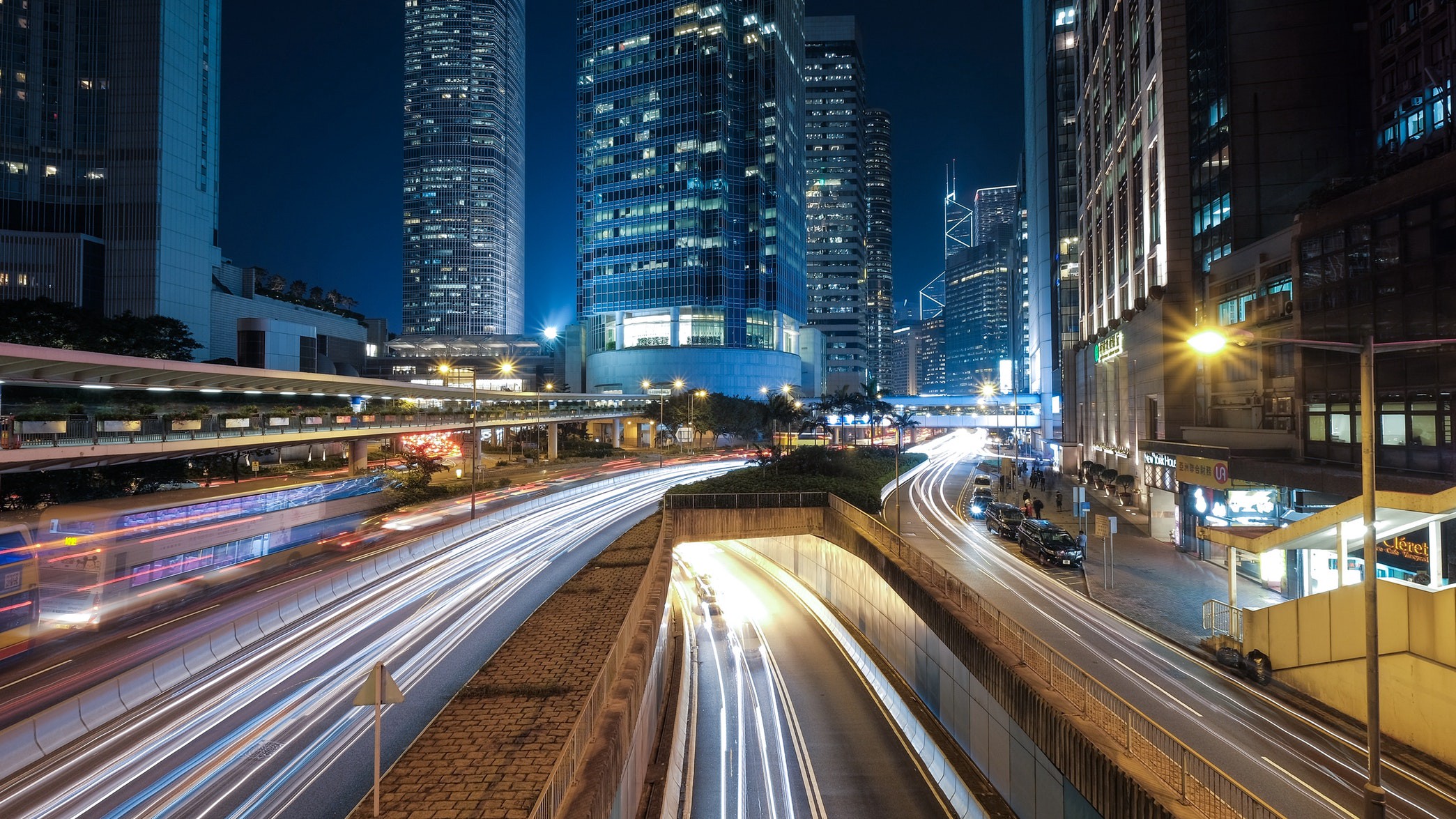 Life moves fast in 852 ? some find it difficult to catch a breath (Source: Puk Patrick)
Life moves fast in 852 ? some find it difficult to catch a breath (Source: Puk Patrick)
?Work hard, play hard? is a very popular Hong Kong expression. But it doesn?t quite tell the full story (i.e. the ?play? part sometimes gets neglected, or overlooked entirely).
While it?s arguably not as bad as in South Korea or Japan, the working culture in Hong Kong can certainly get intense ? especially for those working in the Financial industry. Many stay in the office past dinner (or past midnight). Working half-days on Saturdays is plenty common, too.
Of course, it all depends on the industry. And on your manager. And on the company culture. And so on.
In any case, moving to Hong Kong can feel like stepping back in time when it comes to working conditions. People still care when you come in (9:00AM vs. 9:10AM), when you leave, whether you leave before the boss leaves, whether you take excessively long lunch breaks, etc. And when you finally leave the office after all that, often the only energy you have left is a quick dinner ? and a couple drinks before bedtime.
10. ?China-fication?
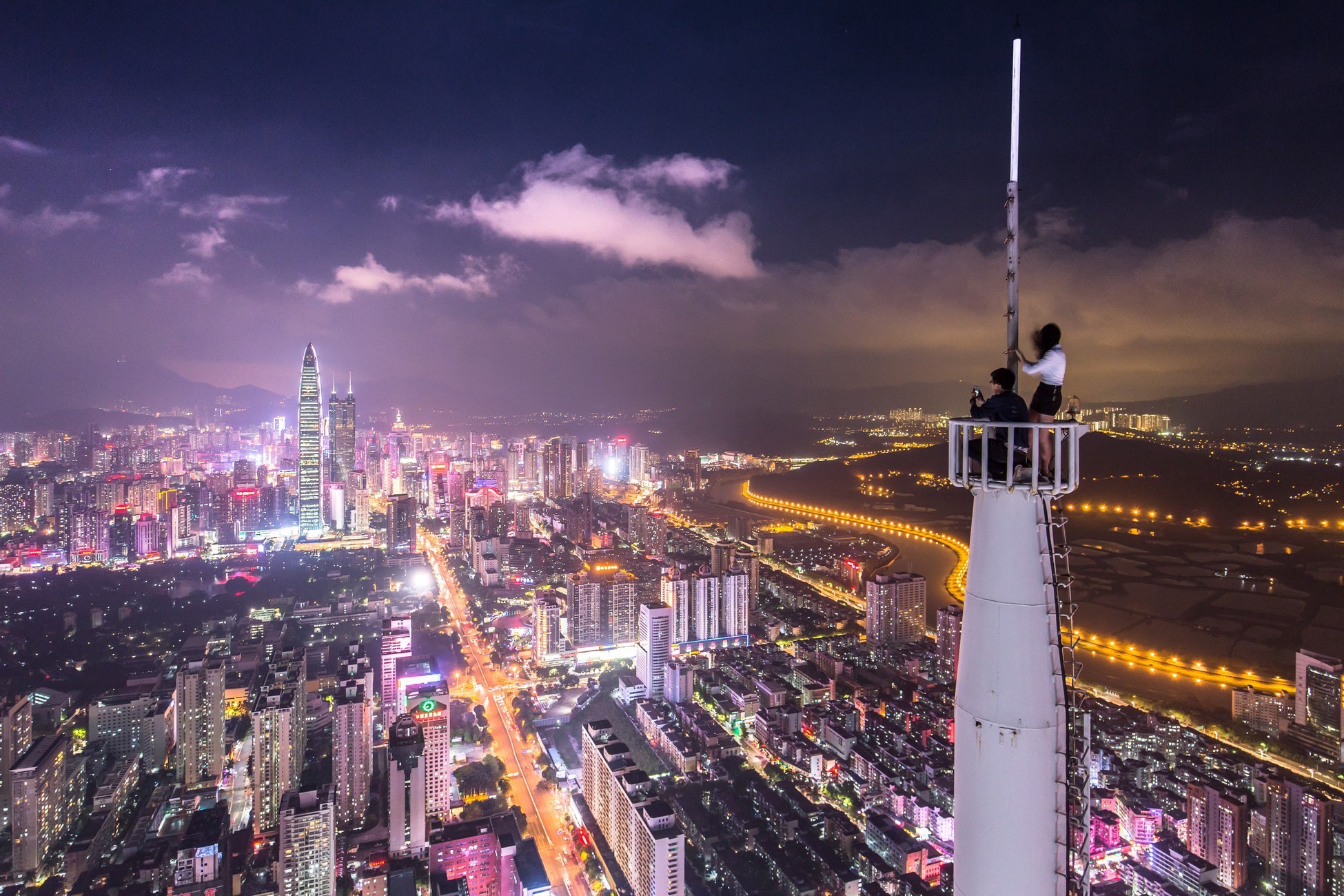 Shenzhen ? located just across the border ? has been stealing Hong Kong?s thunder (Source: Denys Nevozhai)
Shenzhen ? located just across the border ? has been stealing Hong Kong?s thunder (Source: Denys Nevozhai)
You didn?t think we?d leave this out, did you?
Many a naive expat moves to Hong Kong thinking they are going to get both East and West: a front-row seat to China?s economic ascent and the rise of Asia (all while enjoying the conveniences of a former British colony). Instead, they find themselves in a city that hasn?t quite figured out its role for the century ahead ? and in which the residents are starkly divided on China.
Mainland China, of course, cannot be ignored. Since the Handover in 1997, Hong Kong?s fate has ultimately been in its hands. It?s literally right next door, and imposes a greater influence on Hong Kong politics, society, education, and industry with each passing year. No matter what, Beijing always has the final say.
Without getting into the nitty gritty (we urge you to pick up a book about this topic for a better understanding), the increased influence of China on Hong Kong society has made many residents uneasy. They fear that Hong Kong?s forced integration into the greater Pearl River Delta economy will lead to an erosion of local culture, traditions, and even language. In other words, there?s a growing sentiment that Hong Kong will start to look more and more like a typical Mainland Chinese city.
Indeed, many expats have come to a similar conclusion. If Hong Kong is going to be ?just another Chinese city,? then why not just go all the way and move to Shanghai, Beijing, or Shenzhen instead?
There are, of course, other common expat complaints that we haven?t specifically touched on.
In no particular order:
- Excessive use of mobile phones in public (people looking at their phone and ignoring surroundings)
- High rates of mental illness and depression (and failure of society to recognize it as a serious issue)
- People that walk very, very slowly and block sidewalks and escalators
- High costs of owning and operating a motor vehicle
- Shortage of big music festivals
- Too many bitter and jaded expats 😉
Ultimately, every aspect of this is personal, and some of these ?issues? may seem completely trivial to you. We simply did our best to lay it out all out there ? so that you can make an informed decision about whether to move to good old 852.
One thing?s for certain: you?re unlikely to be bored in Hong Kong. Depressed? Maybe. Irritated? Possibly. But bored? Not a chance. The city won?t leave you alone long enough for that.
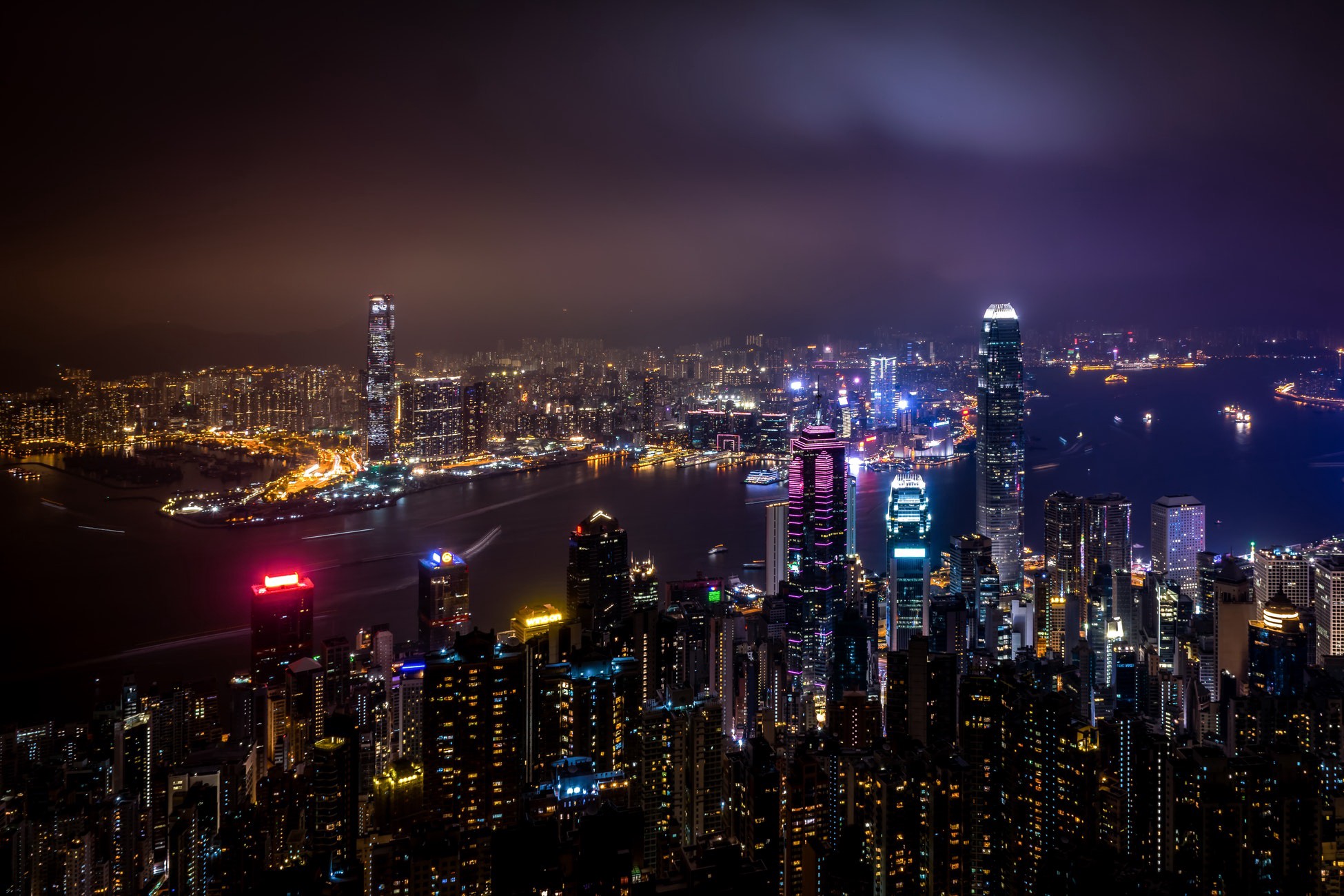 Have you ever seen anything so full of splendor? (Source: Peter Y. Chuang)
Have you ever seen anything so full of splendor? (Source: Peter Y. Chuang)
If you?re still convinced that Hong Kong is the place for you, then by all means: come on over. The rest of us will be waiting ? remember to bring cash, a curious belly, and an open mind!
For your first month or two in Hong Kong, the standard advice is to get a Serviced Apartment (furnished short-stay housing) while you get the lay of the land and figure out everything for a permanent relocation. For the latest Hong Kong serviced apartment options and prices, be sure to check out YourNewBase.com.
